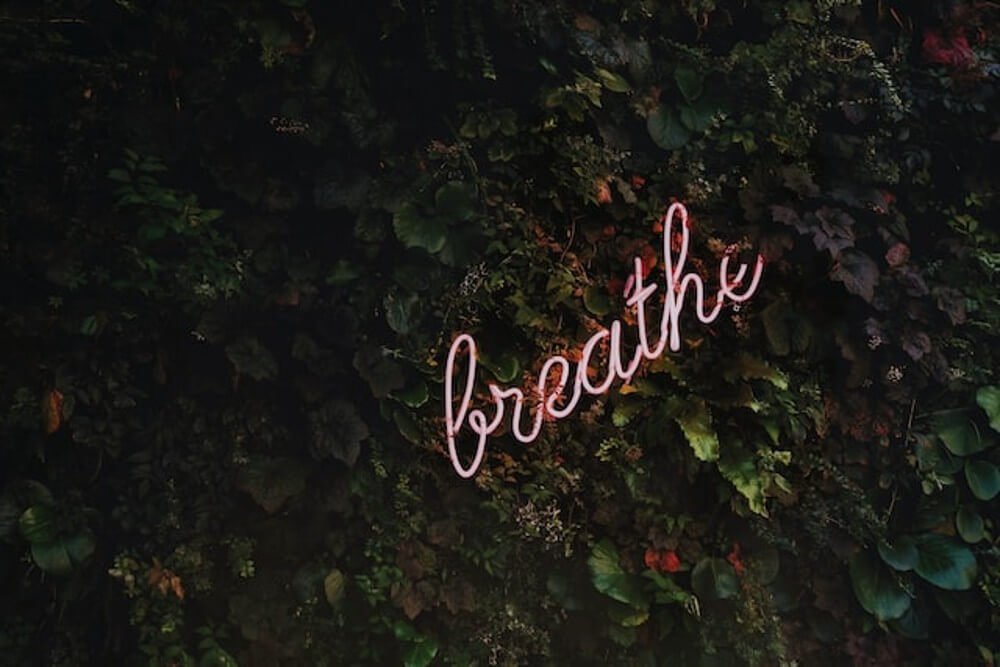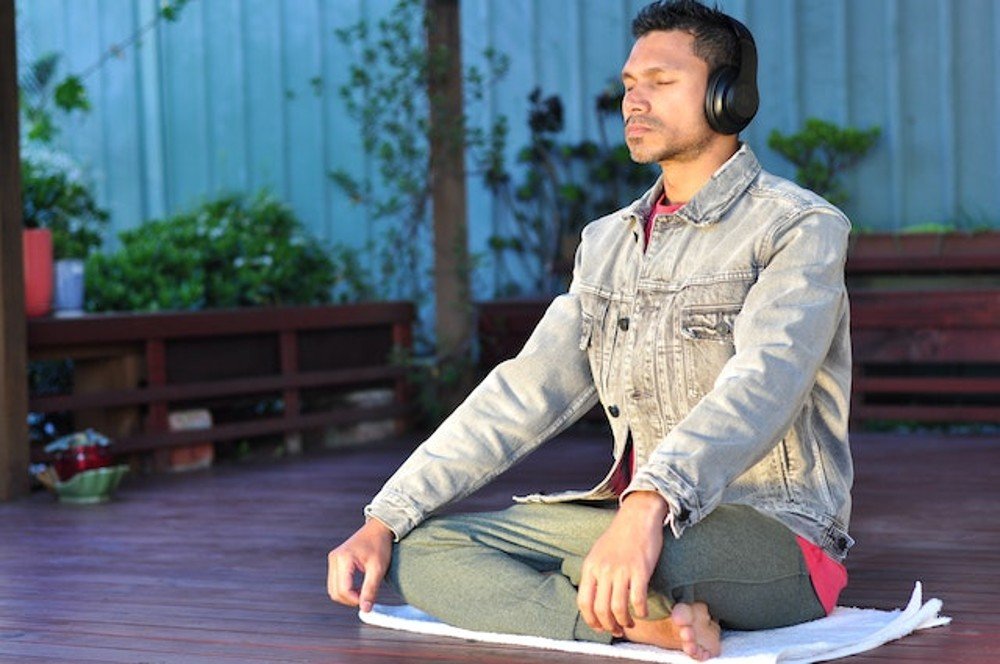If you’re searching for the best meditation for beginners, you’re on the right track. Meditation is one of the wisest decisions you’ll ever make for your overall health and well-being.
It reduces stress, controls anxiety, promotes emotional health, enhances self-awareness, and lengthens attention span.
Other science-based benefits of meditation include reduced chances of age-related memory loss, kindness generation, improved quality of sleep, better pain management, etc.
There are different types of meditation techniques for beginners. They include mindfulness, breathing, focus, walking, and mantra meditations.
However, regardless of your chosen meditation technique, it can be pretty challenging if this is your first time doing it. But we’re here to help and will discuss 30 free meditation for beginners tips to help you get started.
We’ve also included a video below to aid your understanding and enhance your experience. Ready? Let’s get started.
30 Meditation Tips for Beginners
Anyone who has tried meditation understands how challenging the first attempts can be. You find it difficult to relax, and the slightest annoyance can divert your attention.
Sometimes, you also believe you don’t have time to meditate, and quitting the practice seems like the best option. We understand how you feel because we’ve experienced these struggles too!
That’s why we took the time to analyse our experience and discover the tips that helped us through the challenges of the beginner’s stage. Here they are:
1. Start Small
As a beginner, you probably have big dreams for your meditation practice and can’t wait to become an expert. Unfortunately, there’s no jumping the gun when it comes to meditation; you must start slow, small, and steady.
So, take baby steps. If you’ve heard of people practising for 30 minutes or a few hours daily, it’s because they gradually worked up to it.
Start with one minute, then gradually increase it by one each week until you find a time that is convenient for your schedule and feels good to you. We advise that you aim for 5–15 minutes every day.
2. Wear Appropriate Clothes
There are no restrictions on attire, so anything goes. However, comfortable, loose-fitting clothes make it easier to sit and breathe. If you meditate at work, loosen up your tight suit, necktie, and shoes to feel more restful.
3. Switch to Airplane Mode
Setting your phone to airplane mode is one of the essential guidelines for meditation. Leaving your phone on and receiving calls or texts in the middle of the session is the best way to entertain distractions and ruin the progress you’ve been making.
To prepare for meditation, turn off or put your phone on airplane mode five minutes beforehand. You’d be better for it.
4. Make it a Routine
The biggest and most significant improvements in your meditation practice will come from repeated everyday practice. Plan your meditation sessions first thing in the morning for the best results, and allow them to become a natural part of your routine.
This way, it will become a habit and stop you from skipping a practice.
5. Don’t Expect to be Thoughtless
Many individuals believe that meditation involves stopping all thoughts or clearing your mind. Although this is sometimes true, having a blank mind isn’t the objective of meditation.
It’s normal to have thoughts as you meditate because you can’t simply turn off the idea factories that make up your brain. Instead, work on improving your ability to draw your focus back to your practice when your thoughts start to stray.
6. Get Comfortable
Understand that you don’t have to sit on the floor with your legs crossed to meditate effectively. If sitting down on a chair makes you more comfortable, by all means, sit.
Again, if you find sitting on a chair difficult, attempt lying down in a relaxed position.
7. Focus on Breathing

Once you’re comfortable, pay attention to your breath. Simply focus on your inhalation and follow the path of your breath through the nose and into the lungs.
Try counting “one” as you inhale and “two” as you exhale as you take each breath. Start over at one after you’ve done this to the count of 10.
8. Find a Good Time to Meditate
It’s essential to choose a time when everywhere is quiet to meditate. This ensures that you can concentrate without disturbance. Early in the morning or late at night will likely be your best option as a beginner.
9. Find Your Meditation Style
Meditation doesn’t have to be a challenging experience; you can make it enjoyable by finding a comfortable meditation style. You should experiment with different techniques and body positions to find what suits you naturally.
10. Find Your Perfect Space
One of the best ways to enhance your meditation practice is to pick a conducive environment to meditate in all the time.
First, choose a location that makes you feel at peace, as choosing a chaotic environment will affect your focus. Next, ensure that your chosen location is always clean and airy.
Besides helping you have a better meditation experience and feel better, you’ll also have fresh air to breathe when you prioritise cleanliness. In summary, your surroundings must be comfy enough to help you relax.
11. Practise Self-Kindness
Never beat yourself up or judge yourself harshly when you’re meditating. Understand that you don’t have to get it right the first time; only consistent practice makes perfect. In other words, be kind to yourself.
12. Find Your Purpose
The main aim of meditation is to be still. Meditation ensures you’re not distracted by the world’s business by focusing on yourself and what’s most important to you while letting go of what’s not.
This means different things to different people. So, take time to find out what’s important to you and concentrate on it the whole time.
13. Incorporate Music into Your Routine

Incorporating music into your meditation practice is one of the best ways to get the most out of it. First, music is one of the best ways to relax and enhance concentration. It can also help to reduce stress and balance your mind.
14. Repeat a Mantra
It’s wise to start your meditation practice with a mantra or by repeating short phrases in your head. Mantra meditation can help to release your mind and is particularly beneficial when you have trouble meditating.
Many people discover that reciting a mantra may increase awareness and sharpen their focus. It will enhance your meditation since it keeps you attentive.
15. Manage Your Expectations
Allow yourself to be as open to the techniques as possible and let go of any expectations regarding the outcome of your meditation practice. This strengthens your ability to remain mindful and aware as you meditate.
16. Invest in Guided Meditation
With so many meditation methods and techniques available, it’s easy to become confused as a beginner.
Just like learning to swim, an attempt to learn meditation from a book can be ineffective and denies you the opportunity to get answers to your numerous questions. You’ll also not get the expert and personalised advice you need to enhance your meditative journey.
Investing in guided meditation allows you to ask questions, get answers to your queries, and even get feedback on your practice when you learn in-person or online from a licensed instructor. What could be better?
17. Sit Upright
Keeping the spine straight promotes a calm and alert state of mind. Whether you like sitting in a chair or on the floor, ensure your muscles are relaxed and your spine is upright.
Maintaining an elevated position makes you more receptive to the universe’s abundance.
18. Focus on Awareness
Awareness is an essential part of meditation. So, spend some time conscious of your body’s feelings, sounds, and other sensations (such as smell, taste, etc.) that you may feel.
19. Start with Light Stretching or Exercise
For many, fidgeting and physical restlessness pose a more significant threat to meditation practice than mental restlessness.
You can overcome your unease with a few minutes of mild yoga or exercise if this is you. These activities will boost physical relaxation and mental calmness.
20. Set a Timer
Setting a timer can be beneficial for your meditation on some occasions. For example, it can help if you know you have obligations to fulfil, as it prevents you from continually looking at the clock and getting distracted.
21. Use a Meditation App
Have you mastered a meditation technique yet? Using a meditation app is a great idea if you haven’t and don’t live near a meditation centre.
It allows you to meditate from the convenience of your own home with your preferred devices. Simply close your eyes, unwind, and adhere to the directions.
22. Take Note of Your Excuses
If you’re used to breaking your commitment to meditation, ask yourself why. Then, keep track of all the excuses your mind comes up with to justify it. For example, your answer may be “there’s no time” or “I’m exhausted.”
Don’t pass judgment on yourself. Just observe your excuses and decide to continue your meditation practice without them.
23. Close Your Eyes
Keeping your eyes shut as you meditate can help you focus better. Since you don’t have any incoming visual information to divert your attention, your senses will be sharper, and you’ll become more aware of your feelings and sensations in your environment.
24. Meditate on a Light Stomach
A light stomach makes for the best meditation experience. So, you can plan your meditation before eating or a few hours after food.
Meditating on a full stomach increases your chances of drowsiness and indigestion, which can be distracting. It’ll also slow your metabolic rate and make your practice difficult.
Nevertheless, this doesn’t mean you should start your practice hungry. Otherwise, you’ll also be distracted by the thought of food. So, the best approach is to eat light food, like a few slices of fruit, to prevent hunger without keeping your stomach full.
25. Incorporate Special Tools or Equipment
Meditation tools can help you reflect better and invite the right energy into your space. If you need a special tool to help you meditate, don’t hesitate to go for it.
Common examples of meditation tools include pillows, scented candles, brain-sensing headbands, etc.
26. Practice Group Meditation
Have you ever been around someone so positive and joyful that you find it impossible not to feel the same way? Their happiness is contagious even if they don’t say anything, right?
That’s precisely what happens when you’re in a group meditation with relaxed people. Another perk of group meditation is that it enhances your social skills and allows you to make new friends with similar interests.
27. Scan Your Body
Once you are more adept at your simple breathing exercises, you can also try concentrating your attention on one area of your body at a time.
Start by noticing how the bottom of your feet feels. Then, move slowly from the tips of your toes to the tops of your feet, ankles, and head.
28. Start Where You Are
While it’s great to find your special place and time for meditation, life happens, and finding that designated meditation space may be impossible in your situation.
In that case, your best choice is to begin wherever you are. You can meditate in your car, outside, on your office chair, and wherever you like.
29. Don’t Be in a Rush

Take your time to open your eyes or stand up as you near the finish of the meditation. Simply stay in the calm that you have learned to cultivate.
30. Smile Gently
As soon as your few minutes of meditation are up, brighten your face with a smile. Express your gratitude for having this time to yourself, keeping your word, demonstrating your dependability, and giving yourself a chance to get to know and like yourself better.
Final Words
Although meditation isn’t always an easy activity, you must recognise its numerous advantages for your overall wellness.
Fortunately, with the 30 tips above, you’ll get the hang of it in no time. Remember to start now and be consistent to get the best out of your meditation practice.
Do you want to learn more about meditation and how the practice improves your quality of life? Follow our blog immediately. You can also visit our website for quality guided meditation for beginners.
FAQs
How long should beginners meditate for?
Ten minutes should be sufficient if you’re a newbie wanting to relieve stress through meditation. However, you can meditate for 30 minutes if you want to concentrate more on serenity and improved attention.
This gives you enough time for some light stretching and breathing exercises during that period.
How to meditate in bed for beginners
The first step to meditating in bed is to get comfortable as you lie down. Next, feel your breath, and don’t try to fight your intrusive thoughts. Instead, acknowledge them, let them go, and bring your focus back.
Take a moment to consider your feelings. Think about sleeping, rest your head on the pillow, and keep breathing at a slower pace. Congratulations, you’ve dozed off.
What are the best meditation techniques for beginners?
There are numerous meditation techniques to explore. However, as a beginner, mantra, breathing, mindfulness, walking, focus, and progressive muscle relaxation techniques are the best ones to try.
